Long-shot Republican presidential primary candidate Bill Weld sees a way to make it through the primaries
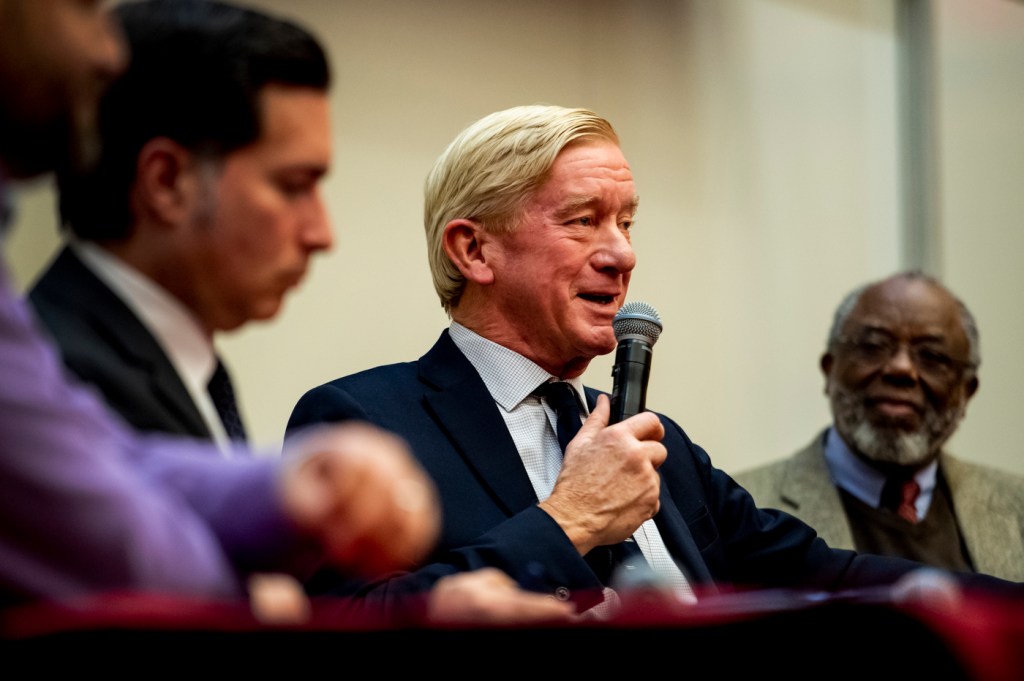
If the ongoing impeachment inquiry were to result in the early departure of President Donald Trump, how would his absence affect the 2020 election? In that unlikely event, who would be the replacement Republican candidate?
It has suddenly become a relevant issue, argued Bill Weld, the former Massachusetts governor who has emerged as Trump’s leading—and entirely long-shot—Republican challenger.
“Let’s say it happens the day after Super Tuesday,” Weld told an audience of on Northeastern’s Boston campus on Wednesday. “I would become the only guy standing.”
On a night when millions of Americans were watching 10 Democratic candidates debate impeachment, immigration, and health care, Weld was offering his vision of a Republican race turned upside-down at the Myra Kraft Open Classroom, which has been holding weekly events to explore the nuanced relationship between the media and the presidential primaries. The series, named after the late philanthropist and wife of New England Patriots owner Robert Kraft, is organized by the School of Public Policy and Urban Affairs.
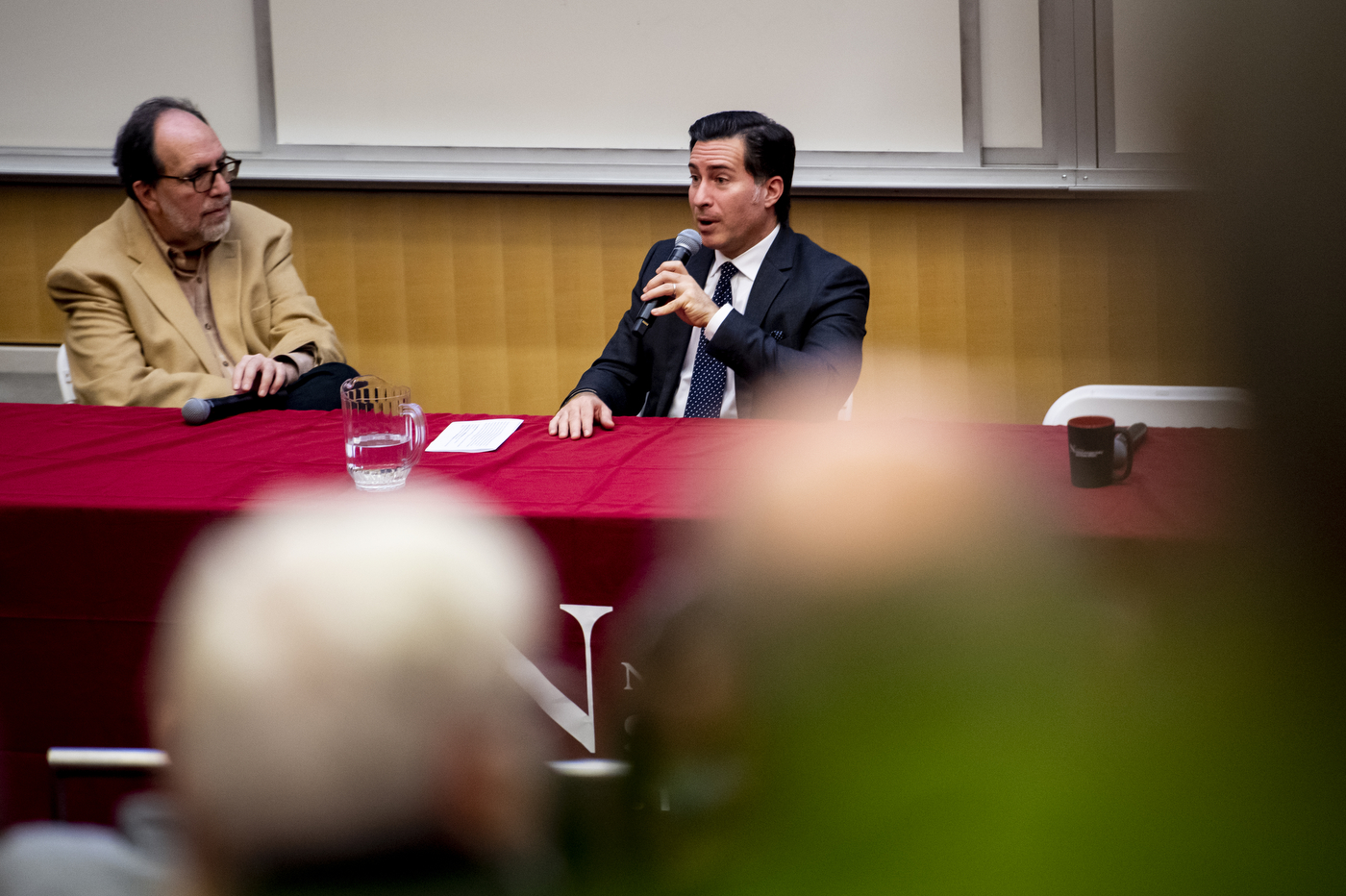
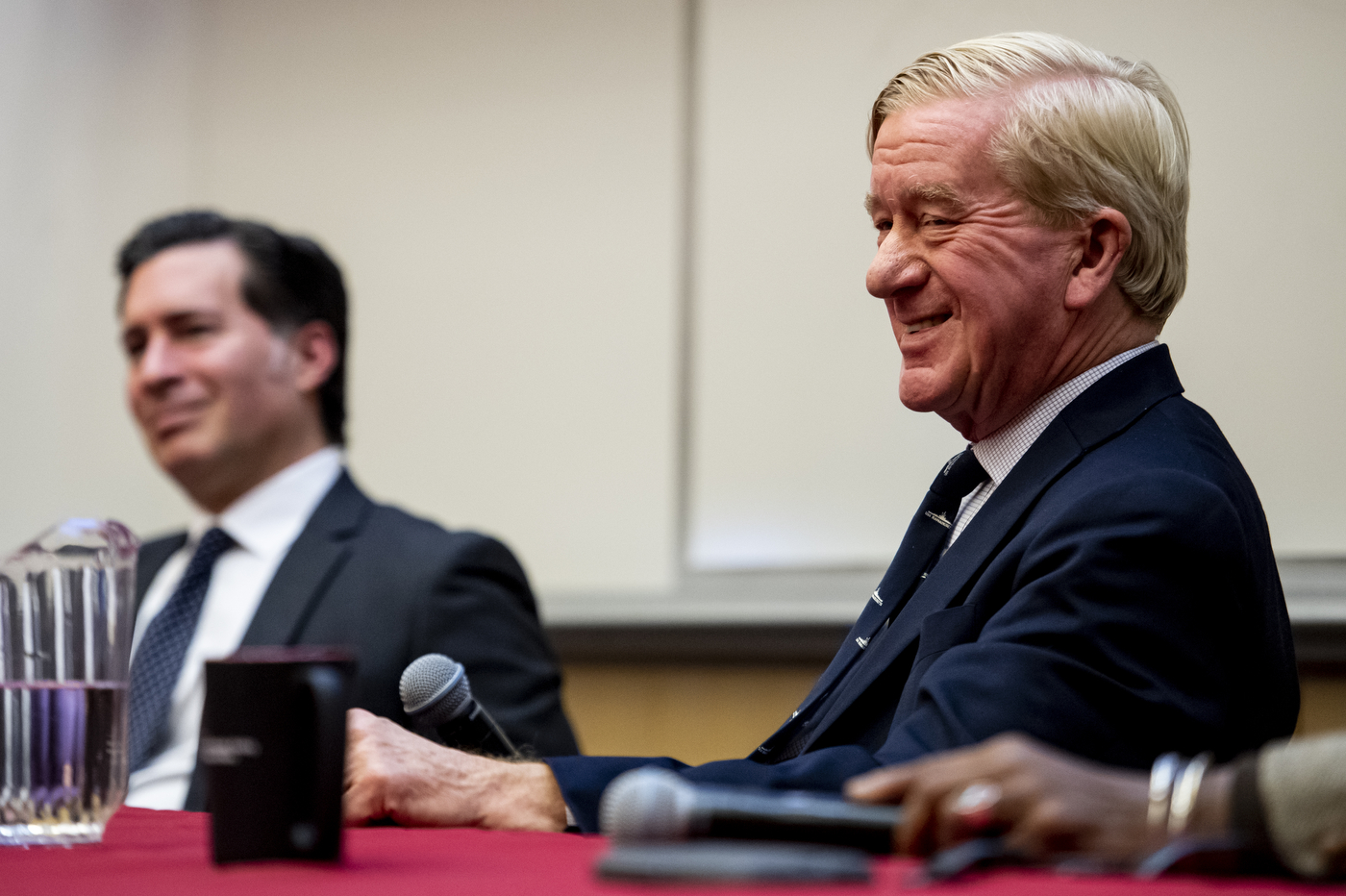
Polls show that Trump is facing minimal opposition on the Republican side from his lone opponents, Weld and Joe Walsh, a 57-year-old conservative radio show host and former Tea Party congressman from Illinois. But the race would be thrown into chaos if Trump were to leave office, as unlikely as that seems. Weld said that the deadlines for entering state primaries would be closed by March 3, otherwise known as Super Tuesday, when Republican ballots will have been cast in 17 states overall.
“There are legal deadlines for filing,” Weld said. “People think, oh well, if Trump goes, then [Vice President] Mike Pence becomes the nominee. No. He becomes the acting president. But he does not become the nominee, because you have to have delegates to become the nominee, and he would miss all the deadlines.”
Even if Weld ended up winning most of the remaining states in the event of Trump’s absence, he acknowledged he would still face huge challenges to become his party’s nominee. He envisioned that new candidates would emerge during what would, in this scenario, be a raucous and unpredictable Republican convention next summer.
“I think you would see a colossal war around the convention, with a lot of other people popping up, and changes of rules retroactively,” Weld said. “But in terms of a Ted Cruz or a Marco Rubio getting in even one day after Super Tuesday and saying ‘I want to join Weld as an active candidate’ in the primaries, it’s too late. So that’s a prospect that actually doesn’t cause me any discomfort.”
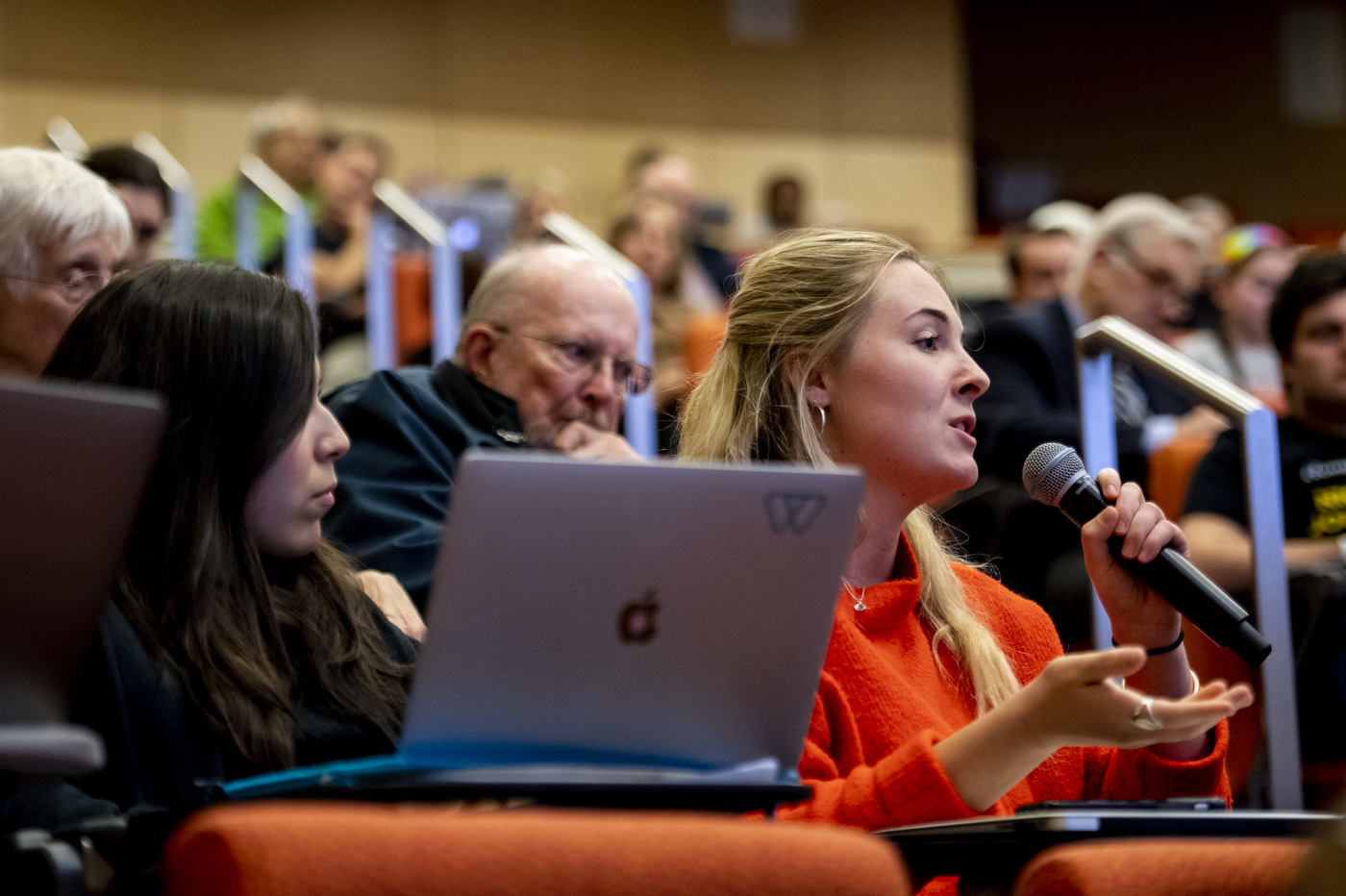
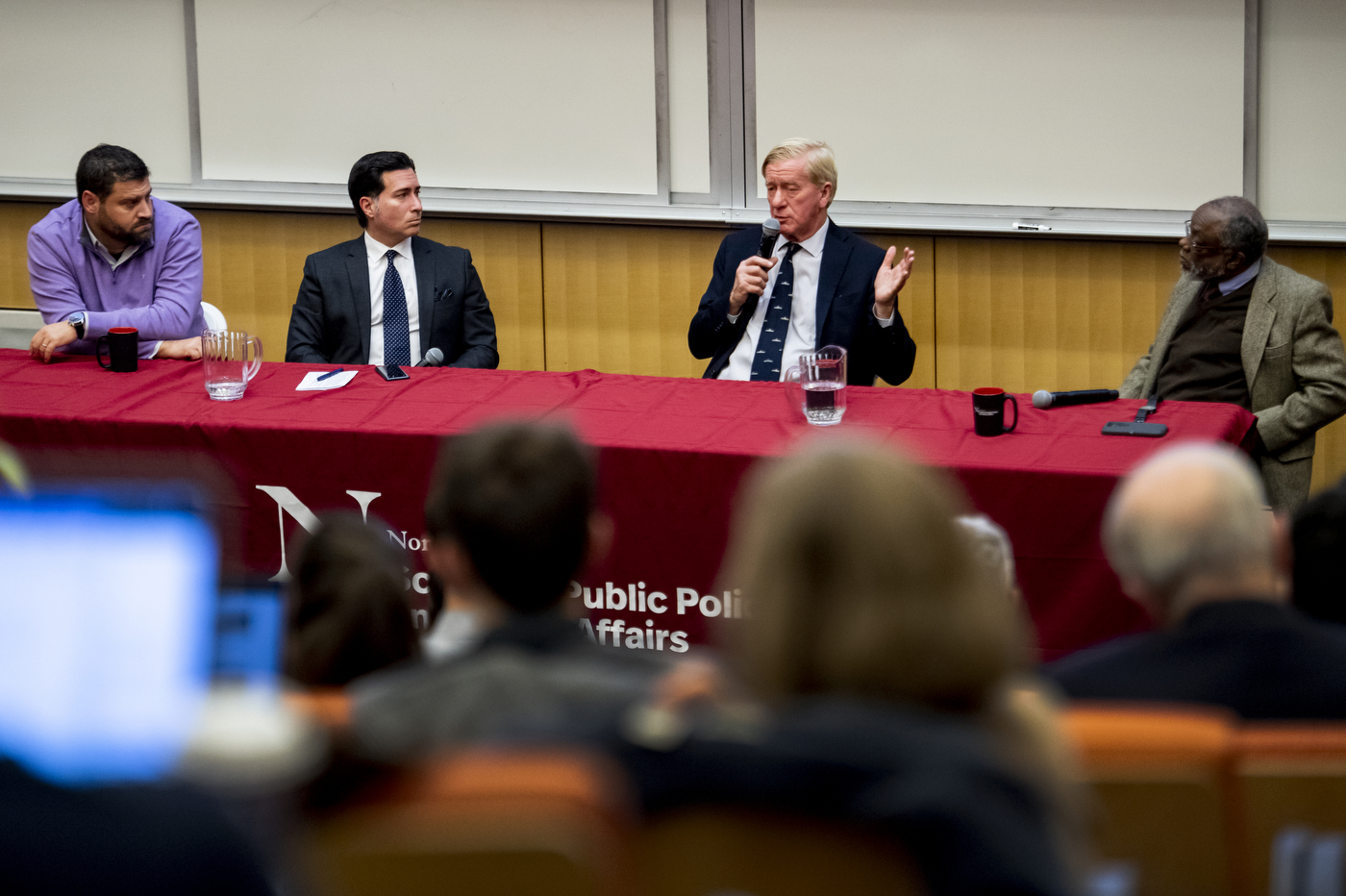
Weld, 74, was known as a social liberal and fiscal conservative during his two popular terms as Massachusetts governor from 1991 to 1997. He launched his career as a junior counsel on the U.S. House Judiciary Committee’s impeachment inquiry staff during the investigation of Richard Nixon, who resigned as president in 1974 when he realized he was going to be impeached.
Weld ran for vice president in 2016 as a Libertarian alongside presidential nominee Gary Johnson. Together, they received 3.3 percent of the vote.
Weld has been pushing for Trump’s removal from office as House Democrats continue with public impeachment hearings involving allegations that the president withheld military funding in order to coerce Ukraine into investigating Democratic candidate Joe Biden. He expressed surprise that a large majority of Republican voters continue to back Trump in this era of polarized politics.
“All I can tell you is I’m not a member of that party in Washington, D.C., that calls itself the Republican Party,” Weld said. “It’s a stranger to everything I was brought up with or raised to believe in.”
Weld spoke on behalf of a number of policies that clash with those of the current administration. He wants the U.S. to issue more visas to provide labor for agriculture, construction, tourism, and other industries. He would seek economic negotiations with China that could help both countries, he would increase funding for mental health, and he would treat addictions as public-health emergencies rather than criminal behaviors. To combat climate change, he favors a fee on carbon users that would be remitted to tax-payers—with the rebates weighted to help lower-income households that have been left behind in this era of increasing wealth disparity.
As the Democrats were preparing for their nationally-televised debate Wednesday night, Weld said he would especially like to challenge Massachusetts Senator Elizabeth Warren, whom he characterized as pro-government and anti-business.
“You can’t take that position to be elected president in the United States of America,” Weld said of Warren. “We’re a slightly right-of-center country—slightly right of center. And that just won’t fly.”
For media inquiries, please contact media@northeastern.edu.






